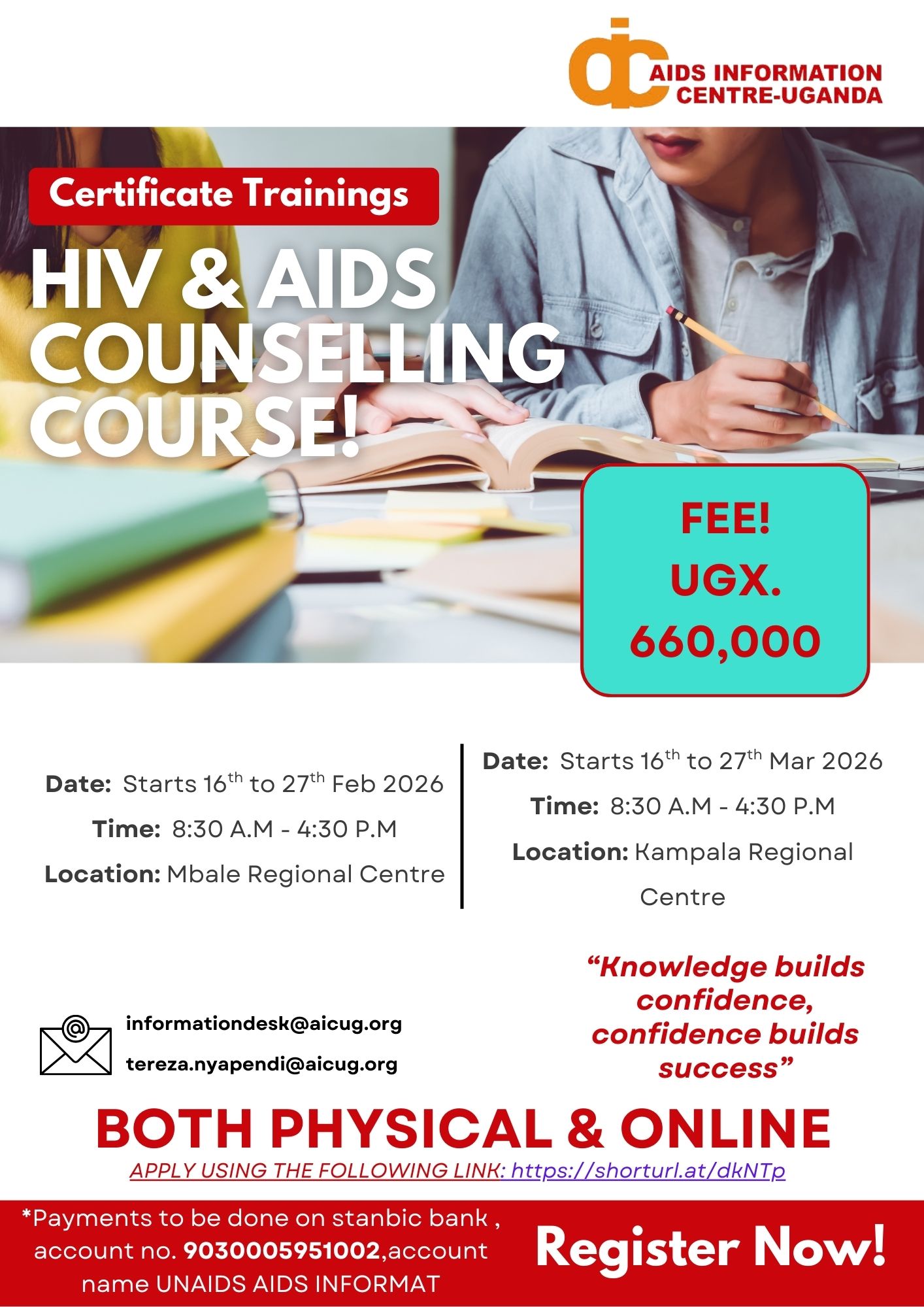
About Course
- Course content: Integrated HIV care, management and treatment counseling
- Modality of training: Classroom, practical and community interface (new approach/ practical)
- Duration: 2 weeks classroom and 2 week practicum
Objective of the training
- To Provide Training On General HIV Care And Treatment of PLHIVs
- Support PLHIVs to adopt and maintain prevention strategies that reduce the transmission of HIV/STI in their communities.
- To provide knowledge on the National HIV testing algorithm
- To provide knowledge on the different HIV prevention interventions
Course Content
Module 1: Overview of HIV
-
Important Course Links
-
Origin of HIV
-
History of HIV in Uganda
-
History of the epidemic
-
HIV/ AIDS Global Statistics
-
HIV and AIDS in Uganda: Statistics
-
HIV Prevalence Rates (UNAIDS 2021)
-
DRIVERS OF THE HIV EPIDEMIC
-
HIV and AIDS: Key and Priority Populations
-
BASIC FACTS OF HIV AND AIDS
-
Characteristics of HIV
-
PRINCIPLES OF HIV INFECTION
-
Exit & Sufficiency
-
Survival & Entry
-
HIV Types and Sub-types
-
MAIN DIFFERENCES BETWEEN HIV 1 AND HIV 2
-
AIDS
-
Differences between HIV and AIDS
-
How to make a diagnosis of (AIDS)
-
FLUIDS THAT HABOUR HIV
-
HIV in Body Fluids
-
Modes of Transmission
-
Co – factors (Risks) to HIV transmission
-
HIV is not spread through:
-
REFERENCES
-
Natural History of HIV
-
Stages of HIV Progression
-
Natural history of HIV/AIDS in Adults: Seroconversion
-
Natural history of HIV/AIDS in Adults: Asymptomatic
-
Natural history of HIV/AIDS in Adults: Symptomatic
-
Natural history of HIV/AIDS in Adults: Progression to AIDS
-
Natural history of HIV/AIDS in Adults: Summary
-
Stages of HIV Progression: Summary
-
Natural history of HIV/AIDS in Adults: Progression to AIDS
-
Natural History of Paediatric HIV
-
HIV PROGRESSION GRAPH
-
Forms of progression
-
Factors that determine the rate of HIV disease progression
Module 2: Laboratory and Clinical Diagnosis of HIV
Module 3: HIV Prevention
Module 4: Antiretroviral Therapy
Module 5: HIV Services Delivery Modules
Module 6: Gender Based Violence
Module 7: HIV Counselling
Module 8: Community Mobilisation and Engagement
Practical
Student Ratings & Reviews

No Review Yet
